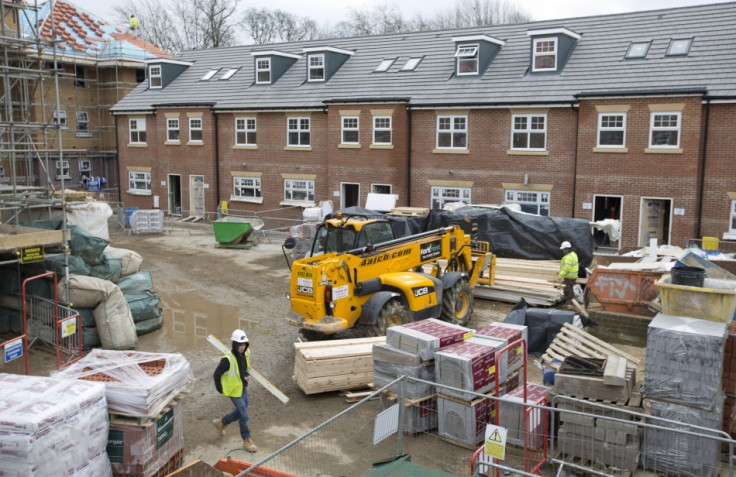UK Construction Sector 'Pulled out of Tailspin' as Housebuilding Kickstarts

Construction output rose at its fastest pace in over two years in May as housebuilding picked up in the wake of billions of pounds in support for the consumer mortgage market.
Financial researcher Markit reported that its monthly index (PMI) for the construction sector, calculated from surveys of purchasing managers, rose to 50.8 in the month as building firms returned to growth.
Any number over the neutral 50 figure suggests output growth, while a figure under signifies contraction. In April the construction sector PMI was 49.4.
"UK construction output appears to have finally pulled out of a tailspin in May, but the latest figures suggest that the sector is worryingly reliant on residential building work for thrust," said Tim Moore, Senior Economist at Markit and author of the report, which is compiled with the Chartered Institute of Purchasing & Supply (CIPS).
"Construction firms cited improving house building activity as the key factor behind a rise in new orders for the first time since May 2012. Meanwhile, shrinking spending on both commercial and civil engineering projects acted as a drag on overall new business growth."
Despite rising output, staffing levels remained stagnant.
Consumer mortgages have been given a boost by two credit easing schemes. The first, run by both the Treasury and Bank of England, is the Funding for Lending Scheme and has been running since summer 2012.
It offers banks discounted loans if their increase their lending to the real economy of consumers and small businesses. This has seen a spike in mortgage lending and borrowing costs for consumers reduced.
The second scheme, called Help to Buy, was announced by Chancellor George Osborne in his 2013 budget. It offers a support package for homebuyers including interest-free equity loans from the government and a mortgage guarantee.
Osborne said this would stimulate demand in the housing market and trigger housing supply, which is desperately needed in the UK.
In 2012, just 100,000 housing starts were made - despite an estimated 250,000 needed to keep up with current demand.
Critics have said Osborne is playing with fire in the housing market and risks bloating a new property bubble.
Research by the Trades Union Congress (TUC) found that if the construction sector had not collapsed in the final quarter of 2011, a decline that continued throughout 2012 and into the start of 2013, the UK economy would have grown three times faster.
Government austerity weighed heavily on construction firms as public contracts dried up. The TUC called on the government to reignite fiscal spending on construction projects, such as housing, to help lift the economy to recovery.
© Copyright IBTimes 2025. All rights reserved.






















